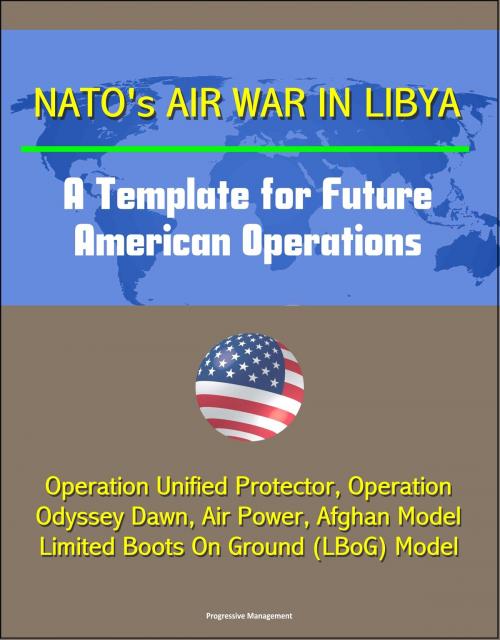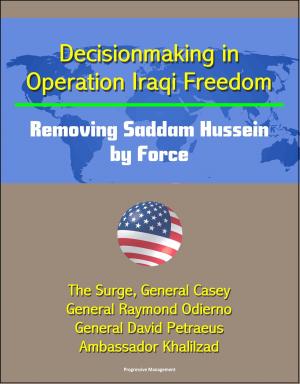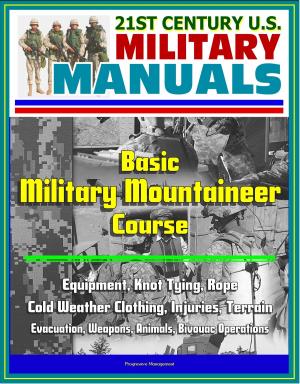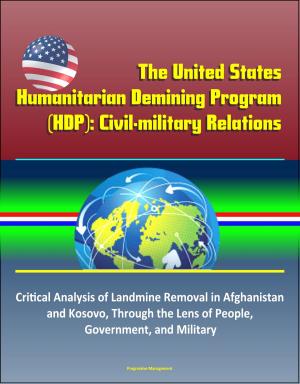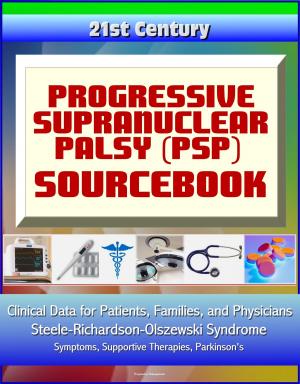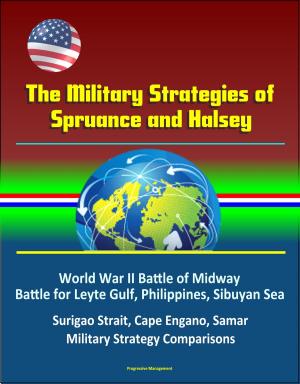NATO's Air War in Libya: A Template for Future American Operations - Operation Unified Protector, Operation Odyssey Dawn, Air Power, Afghan Model, Limited Boots On Ground (LBoG) Model
Nonfiction, History, Military, Aviation, Middle East| Author: | Progressive Management | ISBN: | 9781311428882 |
| Publisher: | Progressive Management | Publication: | April 23, 2016 |
| Imprint: | Smashwords Edition | Language: | English |
| Author: | Progressive Management |
| ISBN: | 9781311428882 |
| Publisher: | Progressive Management |
| Publication: | April 23, 2016 |
| Imprint: | Smashwords Edition |
| Language: | English |
This excellent report has been professionally converted for accurate flowing-text e-book format reproduction. America's recent experience in Afghanistan and Iraq proved that it is easier to get into war than it is to get out of it. These two conflicts bleed America, in terms of not only blood, but also its financial treasures. In an attempt to avoid these expenses in the future, this paper explores if there is a better way to achieve our nation's policy objectives. This research paper attempts to answer the question: does NATO's air war in Libya provide a template for how the United States will settle its future military conflicts? This paper explores three case studies involving airpower to identify the feasibility of a template for future military operations. The first case study explores NATO's 78-day air war against Bosnia over Kosovo. The next case study looks at America's involvement in Afghanistan during the first six months of Operation Enduring Freedom. The last case study involves NATO and America's 2011 involvement in Libya. From these case studies emerges a template that consists of three broad requirements necessary for the Limited Boots on Ground (LBoG) model to work. Finally, this paper discusses four disadvantages of the LBoG model followed by four advantages of the LBoG model.
ACRONYMS * CHAPTER 1 * INTRODUCTION * Background * Problem Statement * Research Question * CHAPTER 2 * LITERATURE REVIEW * Introduction * Operation Allied Force * Afghanistan * Libya * CHAPTER 3 * ANALYSIS * CHAPTER 4 * CONCLUSIONS AND RECOMMENDATIONS * Conclusions * Recommendations * BIBLIOGRAPHY * INITIAL DISTRIBUTION LIST
This excellent report has been professionally converted for accurate flowing-text e-book format reproduction. America's recent experience in Afghanistan and Iraq proved that it is easier to get into war than it is to get out of it. These two conflicts bleed America, in terms of not only blood, but also its financial treasures. In an attempt to avoid these expenses in the future, this paper explores if there is a better way to achieve our nation's policy objectives. This research paper attempts to answer the question: does NATO's air war in Libya provide a template for how the United States will settle its future military conflicts? This paper explores three case studies involving airpower to identify the feasibility of a template for future military operations. The first case study explores NATO's 78-day air war against Bosnia over Kosovo. The next case study looks at America's involvement in Afghanistan during the first six months of Operation Enduring Freedom. The last case study involves NATO and America's 2011 involvement in Libya. From these case studies emerges a template that consists of three broad requirements necessary for the Limited Boots on Ground (LBoG) model to work. Finally, this paper discusses four disadvantages of the LBoG model followed by four advantages of the LBoG model.
ACRONYMS * CHAPTER 1 * INTRODUCTION * Background * Problem Statement * Research Question * CHAPTER 2 * LITERATURE REVIEW * Introduction * Operation Allied Force * Afghanistan * Libya * CHAPTER 3 * ANALYSIS * CHAPTER 4 * CONCLUSIONS AND RECOMMENDATIONS * Conclusions * Recommendations * BIBLIOGRAPHY * INITIAL DISTRIBUTION LIST
